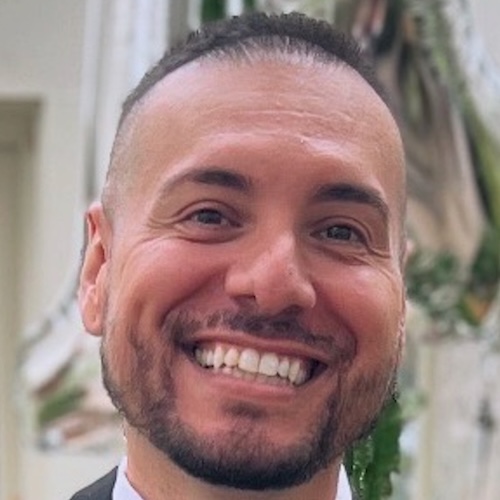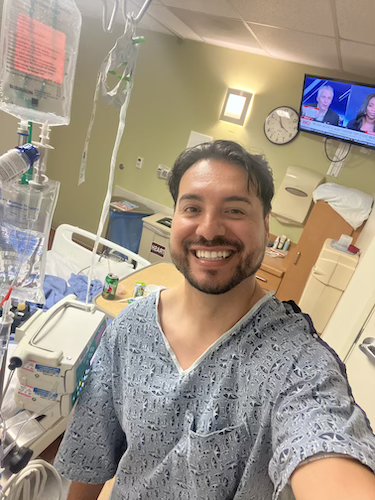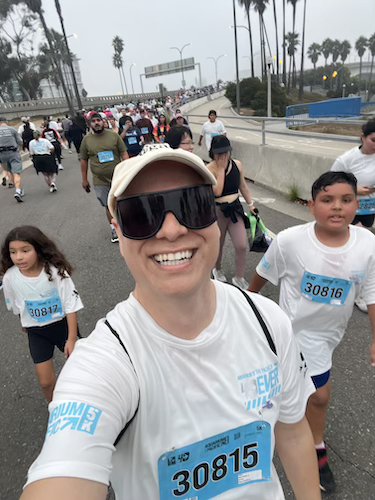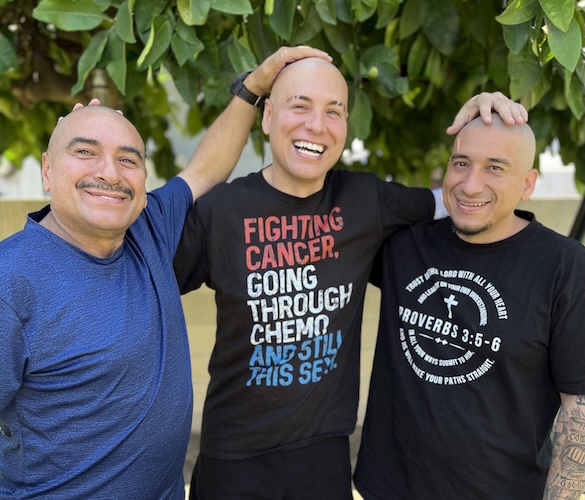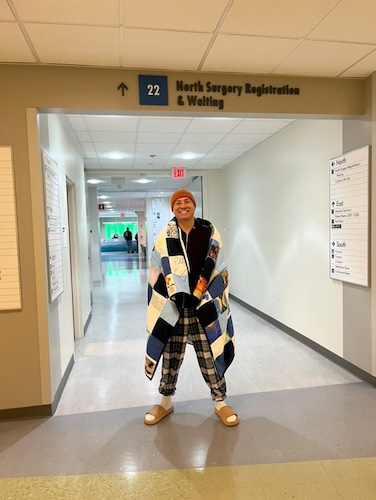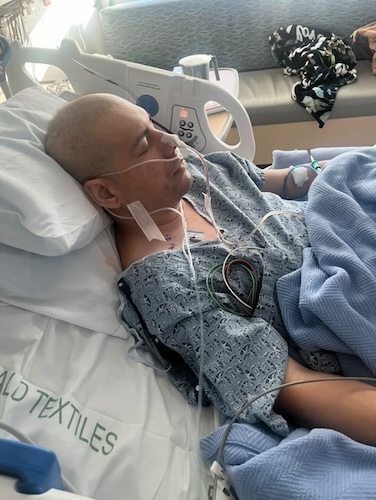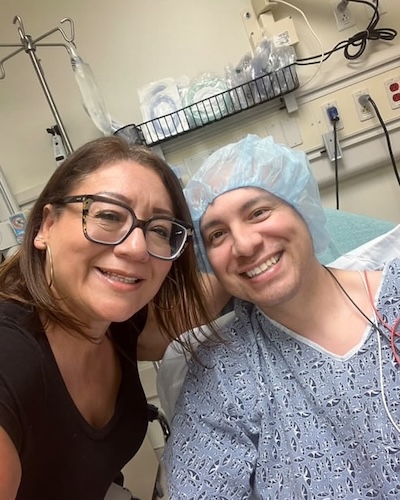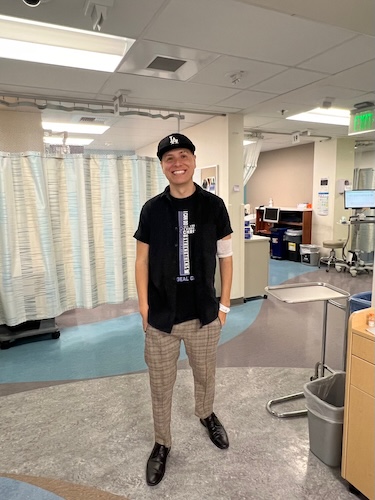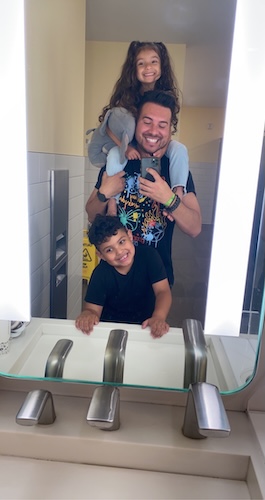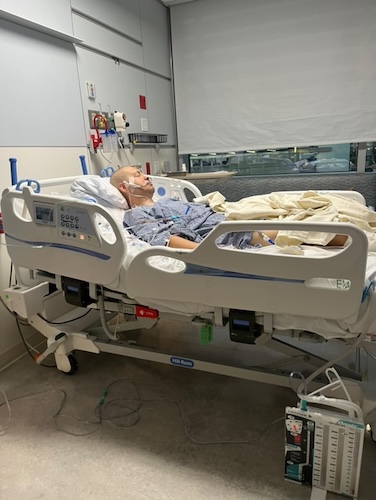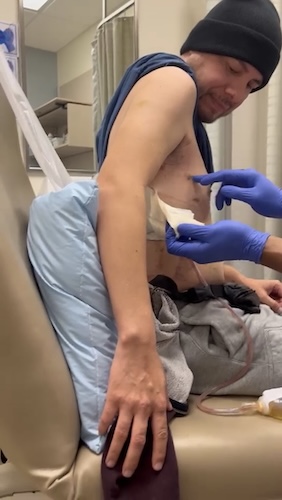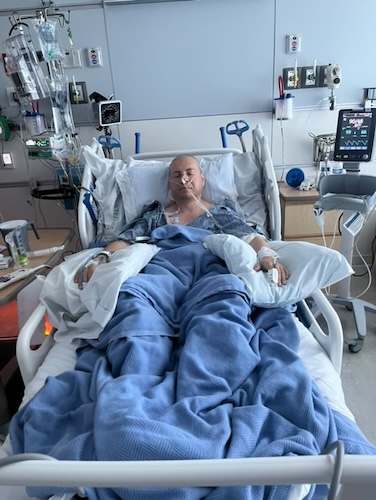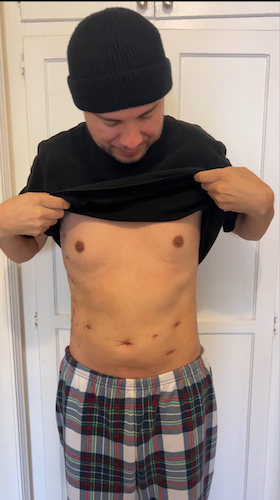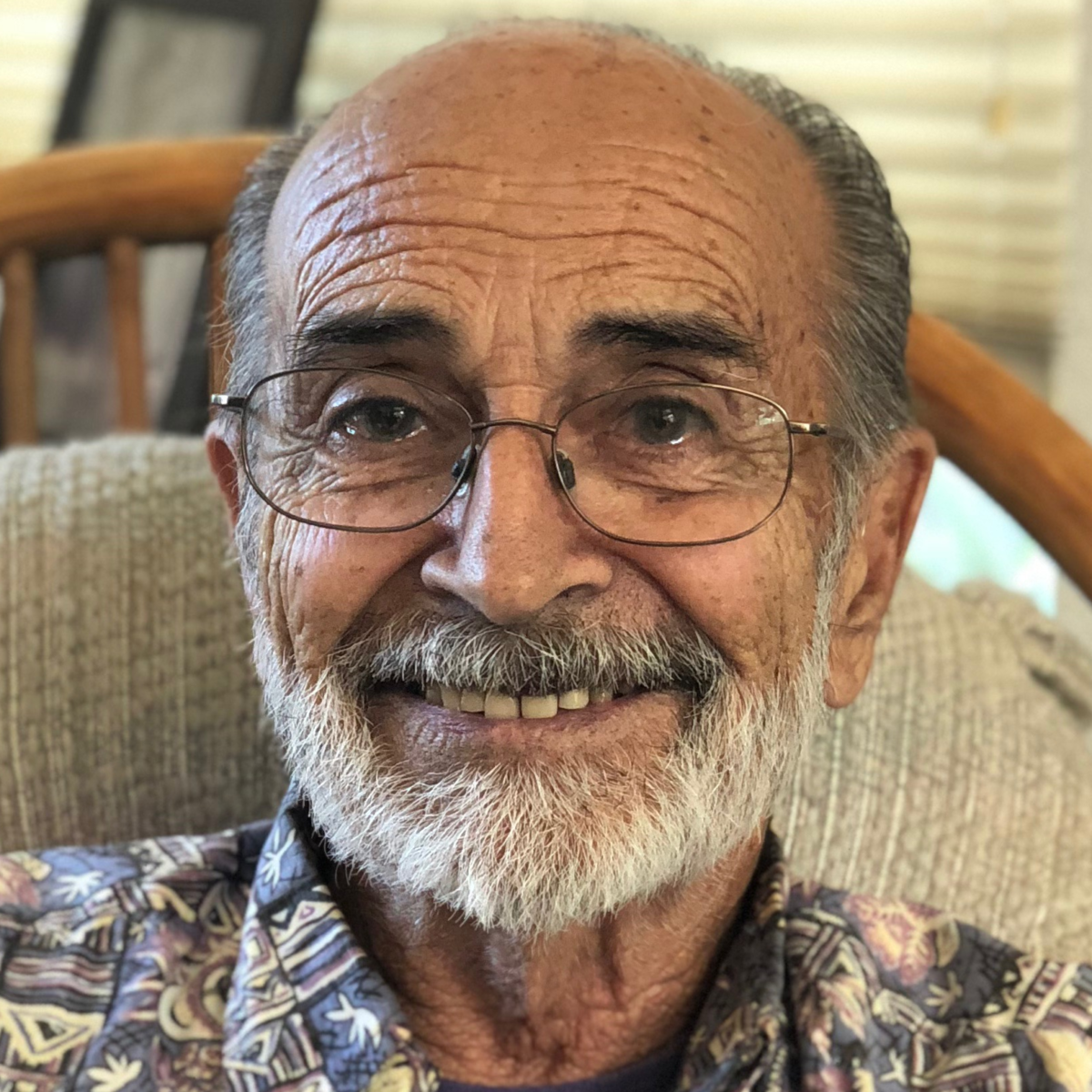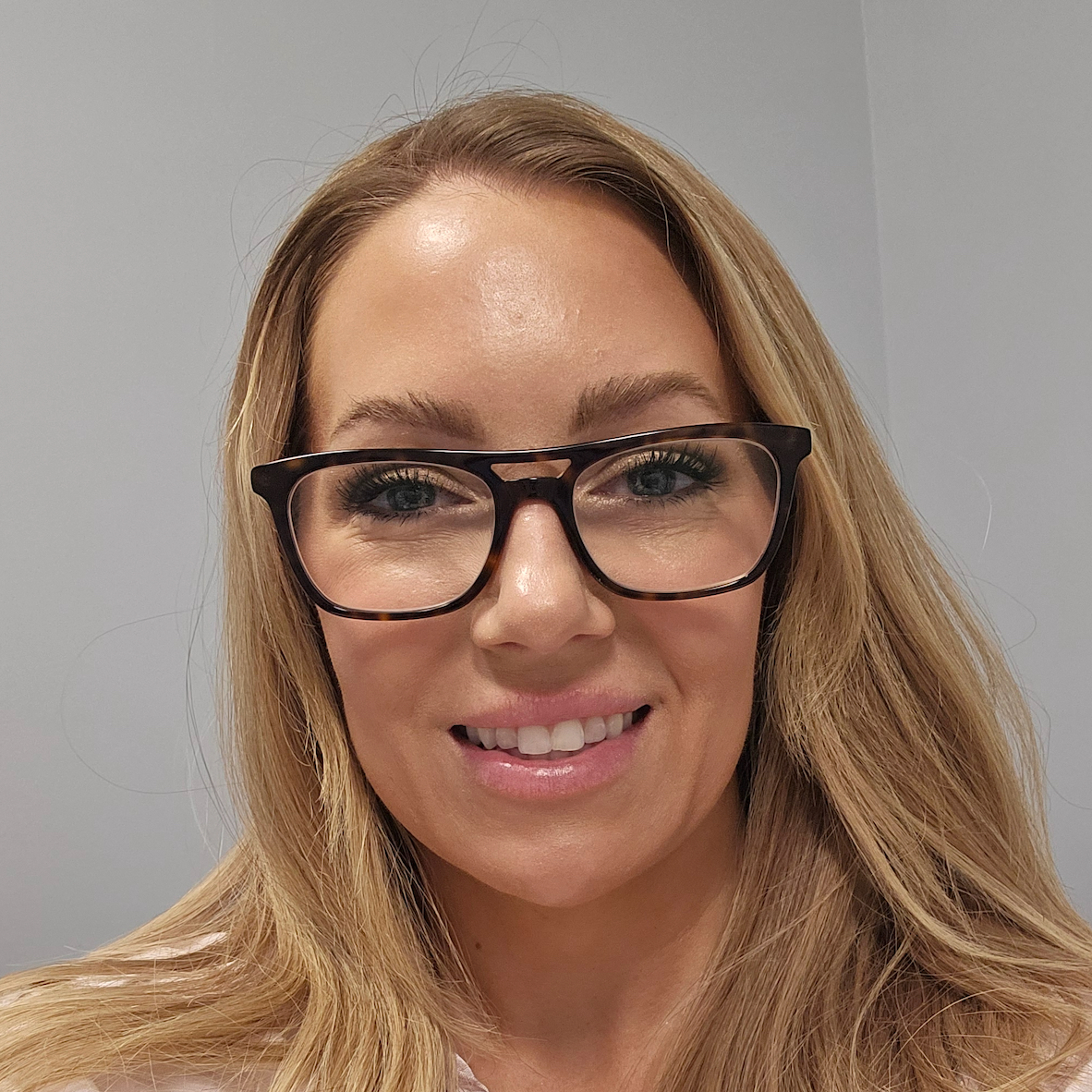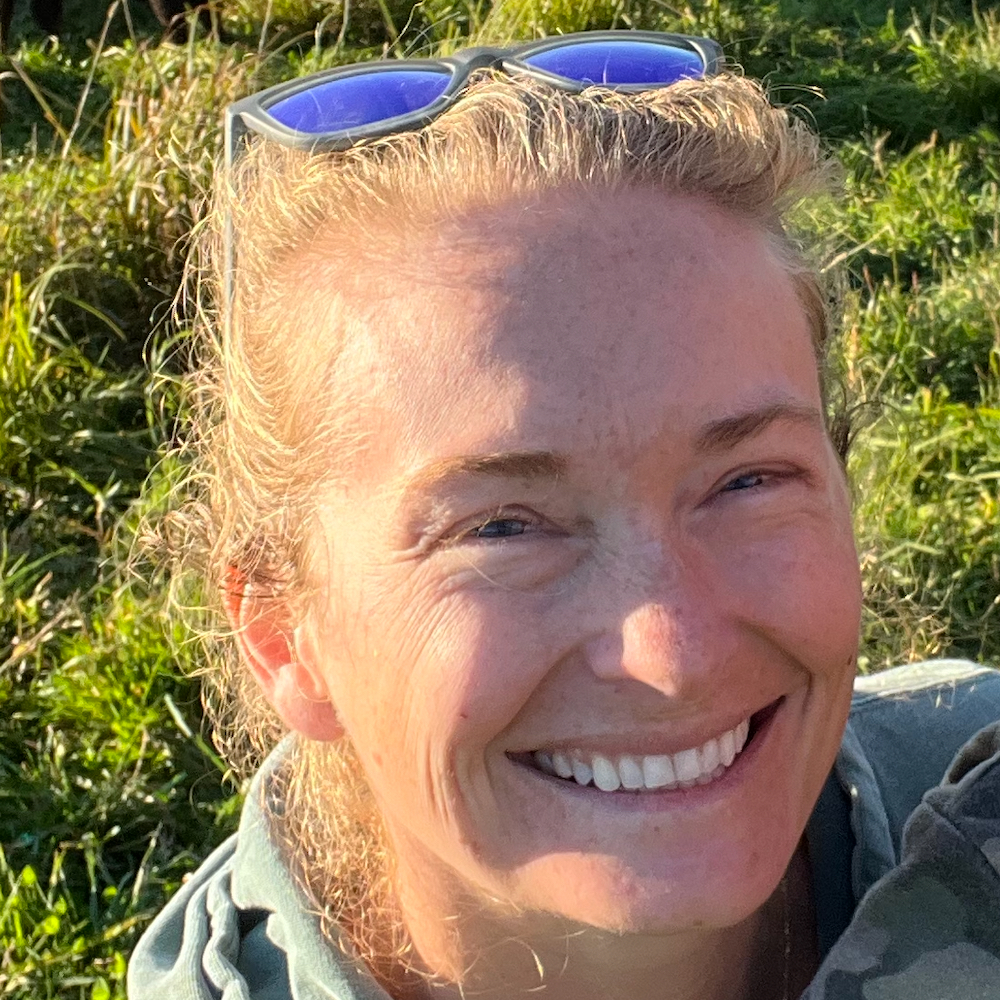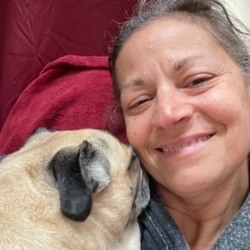Stage 2 Esophageal Cancer Changed Mark’s Life for the Better
When Mark was diagnosed with stage 2 esophageal cancer in June 2024, his life took a scary, unexpected turn. But despite the initial shock, he was able to find a sense of peace amid all the chaos. That’s because he used his diagnosis as a catalyst to slow down and reflect on what truly mattered to him.
Interviewed by: Nikki Murphy
Edited by: Chris Sanchez
Before his diagnosis, Mark was thriving and healthy. He ran and worked out regularly and was healing from past emotional wounds. However, subtle, ominous signs started to emerge in February 2024. He started to experience difficulty swallowing, and initially dismissed this symptom as being due to dehydration.
He found it increasingly difficult to swallow, prompting him to seek medical advice. Doctors reassured him, though, due to his young, healthy appearance. It wasn’t until he was unable to swallow liquids that he rushed to the emergency room. A CT scan revealed a mass the size of a strawberry in his chest, and the biopsy confirmed stage 2 esophageal cancer.

Mark received the news alone in his hospital room. He was overwhelmed and faced a deluge of questions, for which he found few immediate answers. However, he didn’t succumb to his fear; he openly communicated with his children, answering their questions honestly and warmly.
Mark’s treatment plan for stage 2 esophageal cancer included four initial rounds of chemotherapy, surgery, and four additional chemo sessions. Initially, he followed his doctors’ advice without questioning it. But during a break before surgery, when he was able to reflect and research, he learned to self-advocate and make informed decisions about his treatment.
Armed with this knowledge and thinking of his personal health goals, he chose to undergo fewer of the additional chemo sessions. Chemotherapy was grueling. The side effects, like fatigue and nausea, were immense and took both a physical and emotional toll. But Mark was determined to stay positive and present for his family. He managed his stress by focusing on the present, taking each day at a time so he wouldn’t overwhelm himself by worrying about the future.
Mark urges others to realize that he didn’t just survive stage 2 esophageal cancer. He also learned to navigate his life: to live authentically, advocate for himself, and find meaning in adversity. He wants others to know that early detection, listening to one’s body, and seeking second opinions when necessary are all crucial.
Watch Mark’s video and delve into his story:
- Discover how a simple swallowing issue led to a life-changing diagnosis.
- Mark’s candid conversation with his kids will touch your heart.
- See how Mark found peace and clarity through the chaos of cancer.
- Discover the moment Mark realized he could advocate for his health.
- Learn the stress management tips that helped Mark stay positive.
- Name:
- Mark S.
- Age at Diagnosis:
- 40
- Diagnosis:
- Esophageal Cancer
- Staging:
- Stage 2
- Symptom:
- Difficulty swallowing that got progressively worse
- Treatments:
- Chemotherapy
- Surgery: esophagectomy
This interview has been edited for clarity and length. This is not medical advice. Please consult with your healthcare provider to make informed treatment decisions.
The views and opinions expressed in this interview do not necessarily reflect those of The Patient Story.
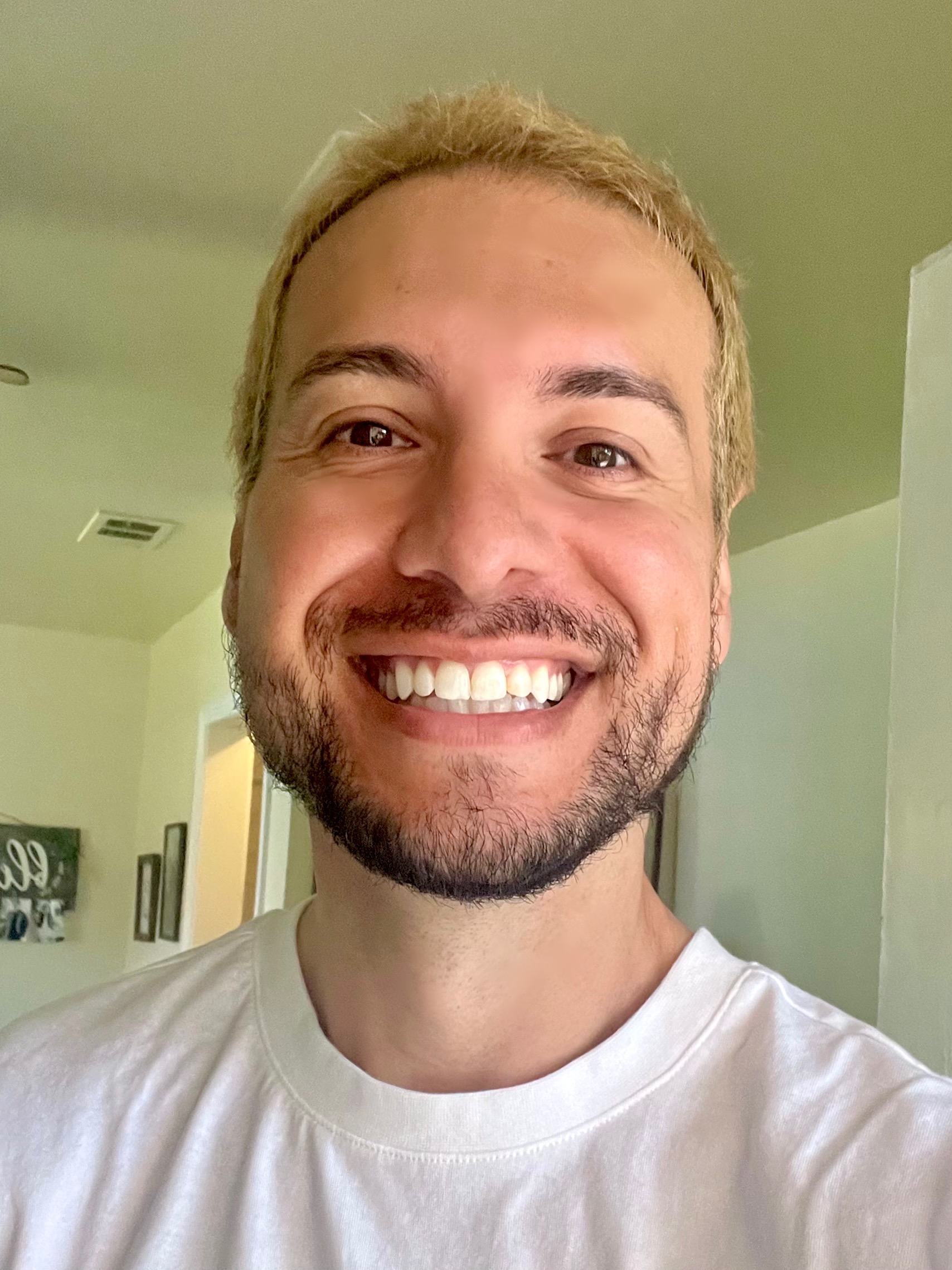
Inspired by Mark's story?
Share your story, too!
Related Cancer Stories
Louis D., Gastrointestinal Stromal Tumor (GIST)
Symptom: Feeling the need for constant urination
Treatments: Surgery to take out the tumor, maintenance chemotherapy (3 years)
...
Andy G., Stomach Cancer, Stage 4 (Metastatic)
Symptoms: Stomach pain, back pain, chest pain, extreme exhaustion, shortness of breath after short walks
Treatments: Chemotherapy, immunotherapy
...
Alyssa B., Stomach Cancer, Stage 4 (Metastatic)
Symptoms: Fatigue, elevated resting heart rate, heartburn, difficulty swallowing, weight loss
Treatments: Chemotherapy, immunotherapy, surgeries (total gastrectomy; partial esophagus removal; bilateral oophorectomy and fallopian tube removal), clinical trial
...
Brittany D., Stomach Cancer, Stage T1b
Symptoms: Choking suddenly while eating and attempting to speak, neck and right shoulder pain, neck tightness, trouble swallowing certain food items
Treatments: Surgeries (subtotal gastrectomy, D1 lymphadenectomy, gastric bypass)
...
Camilla C., Stomach Cancer, Stage 4 (Metastatic)
Symptoms: Issues swallowing, swollen gland in the neck
Treatments: Palliative chemotherapy was offered but declined, nutritional changes to support her comfort and energy, meditation and mindfulness practices, self-directed healing methods
...
Emily D., Stomach Cancer (Gastric Adenocarcinoma), Stage 4 (Metastatic)
Symptoms: Persistent postpartum stomachache, early satiety, difficulty swallowing, vomiting
Treatments: Chemotherapy, immunotherapy
...
Alyssa B., Stomach Cancer, Stage 4 (Metastatic) (Hospice Update)
Symptoms: Fatigue, elevated resting heart rate, heartburn, difficulty swallowing, weight loss
Treatments: Chemotherapy, immunotherapy, surgeries (total gastrectomy; partial esophagus removal; bilateral oophorectomy and fallopian tube removal), clinical trial
...
Kristie C., Colon Cancer, Stage 4 (Metastatic)
Symptoms: None per se that she noticed; she experienced constipation and passed narrow stool, but had been experiencing constipation most of her life, and thought that these digestive issues could also have resulted from perimenopause
Treatments: Chemotherapy (including adjuvant chemotherapy), radiation therapy, ablation therapy (liver ablation), surgeries (colectomy, temporary ileostomy, ileostomy reversal, scheduled liver resection)
Briana H., Colorectal Cancer, Stage 3
Symptoms: Periods of constipation initially lasting one week and then extending to two weeks, nausea, pain in lower left abdomen, lack of appetite, vomiting and inability to keep fluids down
Treatments: Surgeries (colon resection, tumor removal, colostomy placement, colostomy reversal), chemotherapy
Kailee O., Colorectal Cancer, Stage 4 (Metastatic)
Symptoms: Sensitive stomach sometimes leading to vomiting after eating, bleeding during bowel movements, persistent fatigue, back pain, abdominal pain, anemia, significant symptom flare-up during second pregnancy
Treatments: Surgery (colectomy), chemotherapy, targeted therapy
Starr S., Colon Cancer, Stage 4 (Metastatic)
Symptom: Abdominal pain
Treatments: Chemotherapy, surgeries (colectomy, hepatectomy, lymphadenectomy), targeted therapy
Jackson L., BRAF Mutation Colon Cancer, Stage 4
Symptoms: Severe stomach pain, fatigue, lack of motivation, anemia, blood in stool, thinning stool
Treatments: Surgeries (emergency bowel obstruction surgery with temporary colostomy, possibility of HIPEC in 2026), chemotherapy, immunotherapy
Heather C., Colon Cancer, Stage 4 (Metastatic)
Symptoms: Severe bloating, indigestion, vomiting, rectal bleeding
Treatments: Chemotherapy, surgery (liver transplant, upcoming)
Cora V., Colorectal Cancer, Stage 4 (Metastatic)
Symptoms: Fatigue, unintentional weight loss, blood and mucus in stool
Treatments: Chemotherapy, chemoradiation, surgeries (temporary ileostomy and reversal, liver surgeries and ablation)
Monica D., Colorectal Cancer, Stage 1
Symptoms: None; caught at a routine colonoscopy
Treatment: Surgery (low anterior resection with temporary diverting ileostomy)
Edie H., Colorectal Cancer, Stage 3B
Symptom: Chronic constipation
Treatments: Chemotherapy, radiation, surgeries (lower anterior resection & temporary ileostomy)
Shayla L., Colorectal Cancer, Stage 4
Symptoms: Stomach sensitivity, food intolerances, exhaustion, blood in stool
Treatments: Chemotherapy, surgery (hepatectomy)
Tracy R., Colorectal Cancer, Stage 2B
Symptoms: Bloating and inflammation, heaviness in the rectum, intermittent rectal bleeding, fatigue
Treatments: Chemotherapy, radiation, surgery
Paula C., Colorectal Cancer, Stage 3
Symptoms: Painful gas, irregular bowel movements, blood in stool, anemia, severe pain, weight loss, fainting spells
Treatment: Surgery (tumor resection)
Sarah G., Rectal Cancer, Stage 2A
Symptom: Minor and inconsistent rectal bleeding
Treatments: Surgery (low anterior resection or LAR), chemotherapy (FOLFOX)
Kalei M., Rectal Cancer, Stage 4 (Metastatic)
Symptoms: Presence of mucus and tissue-like substance and blood in stool, stomach cramping
Treatment: Radiation therapy, chemotherapy, surgeries (two lung resections)
Jessica A., Rectal Cancer, Stage 4 (Metastatic)
Symptoms: Changes in bowel movements, blood in stool, abdominal pain, back pain, difficulty sitting comfortably, constipation, feeling of incomplete evacuation (as if some stool remained after bowel movements), mucus-like stool consistency, bloating
Treatment: Immunotherapy under a clinical trial
Shiva S., Rectal Cancer, T2, and Renal Cancer, T3
Symptoms: Pressure and urgency of bowels, back pain
Treatments: Chemoradiation (for rectal cancer), surgery (ileostomy, combined bowel and kidney surgery), immunotherapy (for kidney cancer)
Jeanine B., Rectal Cancer, Stage 3 (T3bN0M0)
Symptoms: Long history of bleeding that was blamed on hemorrhoids, pain in the tailbone, urgent need to use the restroom, unusually narrow stools, presence of mucus in stools, fatigue
Treatments: Chemotherapy, radiation therapy
Devon B., Rectal Cancer, Stage 4
Symptoms: Pain when trying to move bowels, increased frequency of bowel movements alternating with periods of constipation, passing mucus instead of feces, narrow stools
Treatments: Surgery (ostomy surgery), radiation therapy, chemotherapy
